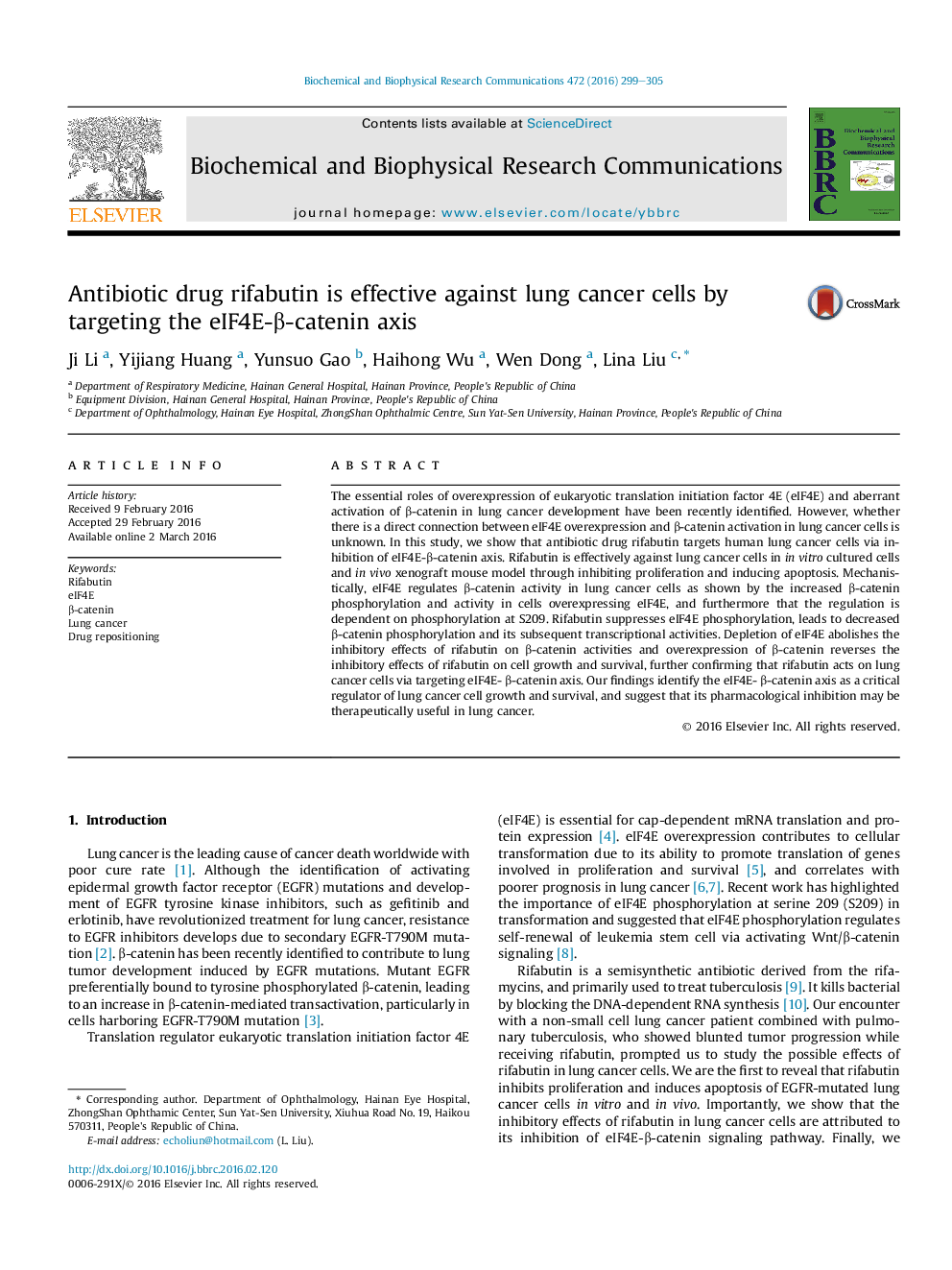| Article ID | Journal | Published Year | Pages | File Type |
|---|---|---|---|---|
| 10748712 | Biochemical and Biophysical Research Communications | 2016 | 7 Pages |
Abstract
The essential roles of overexpression of eukaryotic translation initiation factor 4E (eIF4E) and aberrant activation of β-catenin in lung cancer development have been recently identified. However, whether there is a direct connection between eIF4E overexpression and β-catenin activation in lung cancer cells is unknown. In this study, we show that antibiotic drug rifabutin targets human lung cancer cells via inhibition of eIF4E-β-catenin axis. Rifabutin is effectively against lung cancer cells in in vitro cultured cells and in vivo xenograft mouse model through inhibiting proliferation and inducing apoptosis. Mechanistically, eIF4E regulates β-catenin activity in lung cancer cells as shown by the increased β-catenin phosphorylation and activity in cells overexpressing eIF4E, and furthermore that the regulation is dependent on phosphorylation at S209. Rifabutin suppresses eIF4E phosphorylation, leads to decreased β-catenin phosphorylation and its subsequent transcriptional activities. Depletion of eIF4E abolishes the inhibitory effects of rifabutin on β-catenin activities and overexpression of β-catenin reverses the inhibitory effects of rifabutin on cell growth and survival, further confirming that rifabutin acts on lung cancer cells via targeting eIF4E- β-catenin axis. Our findings identify the eIF4E- β-catenin axis as a critical regulator of lung cancer cell growth and survival, and suggest that its pharmacological inhibition may be therapeutically useful in lung cancer.
Related Topics
Life Sciences
Biochemistry, Genetics and Molecular Biology
Biochemistry
Authors
Ji Li, Yijiang Huang, Yunsuo Gao, Haihong Wu, Wen Dong, Lina Liu,
